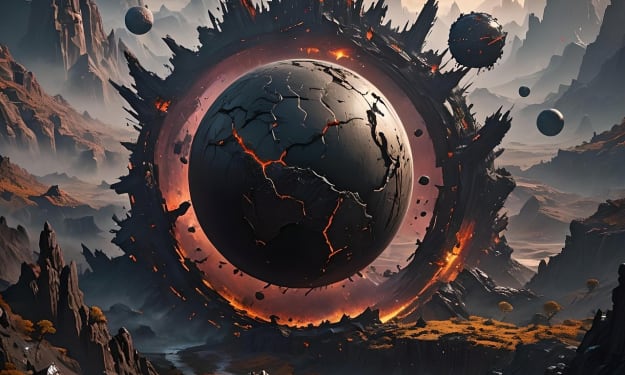Theories of Time Travel
Imagine a scenario where you journeyed a billion years into the future.

If you were to travel 10,000 years into the future, you might wonder how Planet Earth would appear. Would the majority of its surface be covered in volcanoes, or would it be frozen in ice? And what if you journeyed even further, say one million years into the future? Would all the oceans have evaporated, transforming it into a giant water world? And what about one billion years into the future? Would any humans remain on Earth, or would they have established colonies in other parts of the galaxy?
Upon reaching one billion years into the future, the chances of encountering any humans are incredibly low due to various existential threats facing our species. To endure the challenges of climate change, overpopulation, global nuclear war, killer asteroids, natural ice ages, and the increasing heat from the sun, humanity would need to overcome immense obstacles. However, history has shown our ability to overcome challenges like the Y2K bug and genetic diversities among populations.
As we venture forward in time, certain changes become evident. Around ten thousand years from now, the world will encounter the deca millennium bug, similar to Y2K, affecting software encoding for the AD calendar year. Genetic traits among humans will be evenly distributed worldwide, potentially fostering greater harmony. Languages will evolve significantly, with only one percent of the core vocabulary words remaining recognizable after twenty thousand years.
The Earth will witness glacial periods and ice ages in the distant future. Major geological events, like volcanic eruptions and asteroid impacts, may shape its landscape. Humanity's progress will extend beyond our planet, with settlements throughout the solar system, leading to potential human evolution on different worlds.
As we continue our journey into the distant future, dramatic changes unfold. The continents will collide, split, and reshape, creating new ocean basins and mountain ranges. Earth's geographical features will undergo significant transformations, while celestial events, such as asteroid impacts and gamma-ray bursts, may impact life on our planet.
Ultimately, one billion years from now, Earth will face a warmer, uninhabitable state. Rising solar luminosity will cause temperatures to soar, evaporating the oceans and rendering the atmosphere inhospitable. Humans, if still around, would likely have established colonies elsewhere in the galaxy, seeking new homes beyond the unlivable Earth.
In conclusion, if you were to travel one billion years into the future, Earth would be a vastly different place, with human existence uncertain and the planet experiencing radical environmental shifts. The journey into the future would present a fascinating and challenging exploration of time's profound impact on our world and species.
About the Creator
Always Curious
Curiosity is a quality related to inquisitive thinking such as exploration, investigation, and learning. It is an eager wish to know or learn about something. Curious people ask questions, read and explore.






Comments
There are no comments for this story
Be the first to respond and start the conversation.